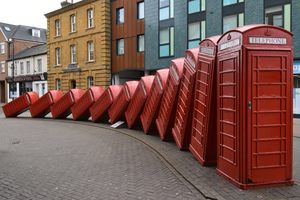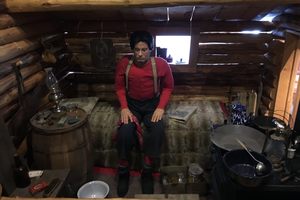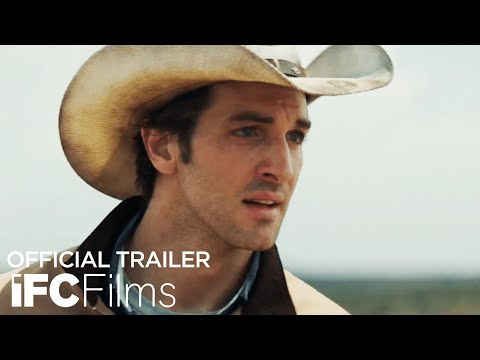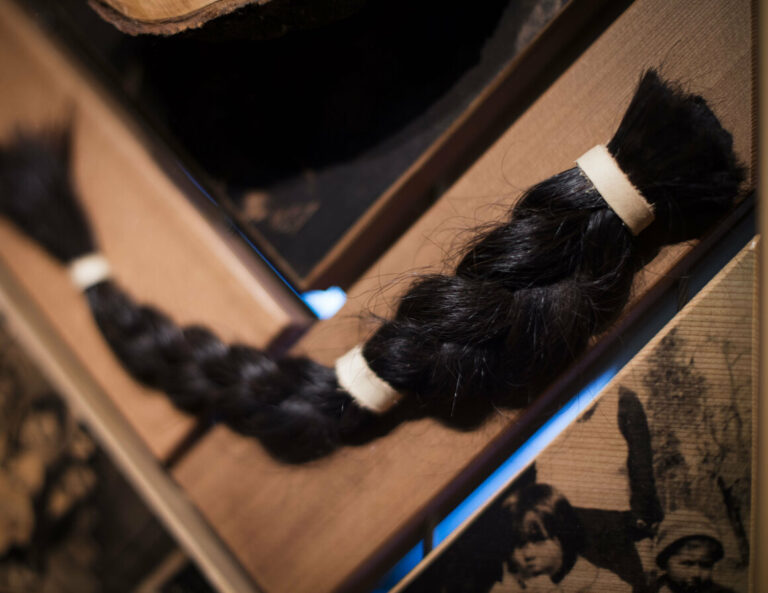WE ARE WHO WE ARE Season 1: An Immersive Gen. Z Coming Of Age Drama
In HBO’s immersive and deeply moving coming-of-age drama We Are Who We Are, everyone is either finding their own identity or reclaiming something that was once lost about them. Created, directed, and co-written by the acclaimed director of Call Me by Your Name, Luca Guadagnino, the show focuses on a group of teenagers, as well as the adults around them, as they’re navigating the rhythm of life on the U.S. Military base in a sleepy town of northeastern Italy. Questions about gender and sexuality are being pondered throughout. First loves, heartbreaks, and betrayals are being experienced by the characters from one episode to another. It’s so universal and involving that watching the show unfold before our eyes almost feels like witnessing ourselves and our friends drifting through the complexity of adolescence once again.
The Beginning Of A Beautiful Friendship
At the core of the story, however, is the burgeoning friendship between two curious teenagers, Fraser Wilson (Jack Dylan Grazer) and his new neighbor Caitlin Harper (newcomer Jordan Kristine Seamón). The former is a shy but emotionally volatile 14-year-old boy who has a keen interest in astrology and poetry. We first meet him when he has just arrived in Italy from New York. One of his moms, Sarah (Chloë Sevigny), has no choice but to move Fraser and her wife Maggie (Alice Braga) when she’s appointed to be the new colonel on the military base. While Maggie seems to be a lot more accepting of Sarah’s decision, Fraser, on the other hand, struggles to do the same. He resents his mom for destroying the perfect life that they once had in New York. Anytime he sees an opportunity to blame Sarah, he will do it in a heartbeat.
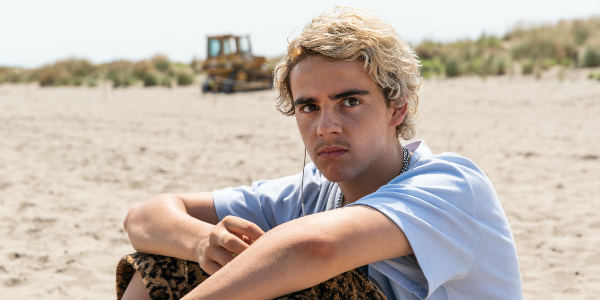
Throughout the first episode, the show follows Fraser as he’s wandering aimlessly around the base. And it’s at this moment where he first meets Caitlin, though it’s the charming and beautiful Britney (Francesca Scorsese) who first approaches him and invites him to go to the beach with her gang. Aside from the aforementioned girls, there’s Caitlin’s older brother, Danny (Spence Moore II). There’s also Sam (Ben Taylor), Caitlin’s possessive boyfriend, as well as his own brother Craig (Corey Knight), and some other local kids like Enrico (Sebastiano Pigazzi), a boy from Veneto who has a weak spot for Britney.
Fraser doesn’t instantly click with the group though. In fact, while Britney and her gang are in the middle of enjoying the beach, Fraser decides to leave them to explore his new home by himself with wine in his hand and an earphone always blasting his favorite songs on the journey. At first, the scene where Fraser is strolling around the city while trying to find a way to get back to the base feels to have no purpose except to give the show an opportunity to display the stunning location where the story is set. And while the location is indeed beautiful, Guadagnino‘s intimate direction, along with Fredrik Wenzel‘s excellent cinematography, seems to suggest something more profound; he wants us to get inside Fraser’s head as he’s making sense of himself and his feeling of displacement in this new place he’s supposed to now call home.
The second episode “Right Here Right Now II”, is structured around the same events that happen in the premiere, but it’s now told from Caitlin’s perspective, mostly to let us know how she and Fraser, despite their different behaviors and views on life, find something that eventually connects them together. Guadagnino, once again, demonstrates what he’s done masterfully in the first episode, taking us inside the character’s head — this time Caitlin’s — as she goes about her days.
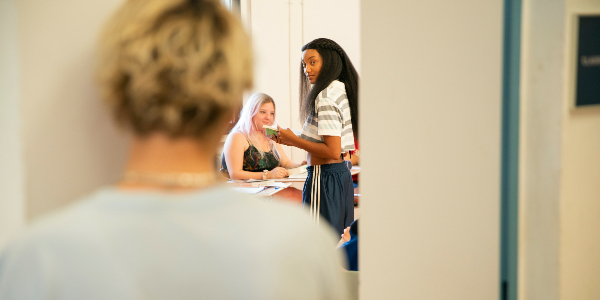
This storytelling method — allowing us to hear what the characters hear and to see things the way they see them — is what, in the end, makes We Are Who We Are such an immersive show. It not only observes Caitlin and Fraser as they’re pondering about their identities and navigating their struggles through life, it also wants us to directly experience the inner turmoil and dilemmas that they’re experiencing every day. Even when some scenes often feel like they don’t add any insight to the story, mostly because they seem extremely subdued into the breezy vibes that Guadagnino is clearly trying to capture in the first place, the show ensures that the messy and complex interior lives of the characters are always on the front and center seat of every moment.
And to hammer home that point even deeper, Guadagnino also makes sure to always bring out a beautiful subtlety from the actors’ performances. Grazer, who’s usually known for bringing levity and euphoria into any characters he’s playing, gives a rare, understated performance as the confused Fraser. He manages to always fill every layer of his character’s emotions with vulnerability. As a foil to Fraser, Seamón‘s performance as Caitlin is even subtler. Her eyes contain a multitude of feelings and rawness. And her chemistry with Grazer is always solid. The other actors, especially Sevigny and Braga, as well as Kid Cudi and Faith Alabi as Caitlin’s parents, are equally great too, and even at times heartbreaking.
Finding Yourself And Your Identity
While Fraser and Caitlin’s friendship is what the show largely focuses on, We Are Who We Are, at its heart, is actually a story about identity, or lack thereof. And it’s not just concerning Fraser’s confusion of his sexuality or Caitlin’s experiment on gender, though the exploration of these two subjects is where the show mostly excels at. All the characters are going through something. They are asking no one but themselves about who they are, what they’ve become, what was once lost about them, who to trust and love, and just every kind of question that they could ever think of.
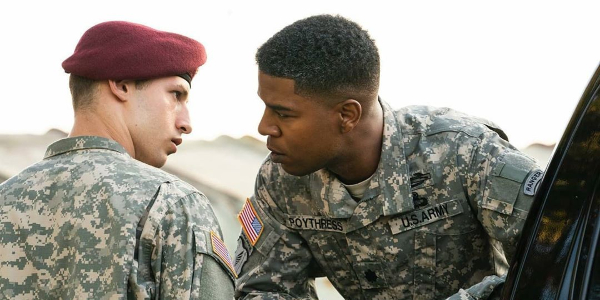
Take, Danny, for instance. Throughout the show — at least in the first four episodes available for reviews — Danny keeps struggling to navigate himself as a Moslem man in a place that doesn’t allow him to fully embrace what he believes in. Or take Caitlin’s father, Richard (Kudi), and his political stance as a Black Trump supporter for example (the show takes place during the 2016 election). At one moment during the excellent third episode, Caitlin’s mother, Jenny (Alabi), wrenchingly delivers one line that could easily be uttered by all the other characters too. “I used to be a lot of things,” she says to Maggie. “But then I stopped being a lot of things. The truth is, I don’t know who I am anymore.”
What Jenny says here, about not knowing who she is anymore, permeates the show in each episode. And though the struggles that the characters are facing throughout the show are specific and different, it’s easy to relate with every one of them. There’s universality in their stories, and this is what makes We Are Who We Are all the more emotionally resonant. Even by simply looking at the military base itself, which is built to resemble American suburbia but in the end will never be as American as one hopes for because, well, it’s on Italy, the sense of displacement that the show wants to explore is palpable enough.
Final Thought
We Are Who We Are, however, is not without its flaws. There are moments, like the opening of the fourth episode, where the show feels more little style over substance, and there are some characters who haven’t been explored as deeply as the others. But for most of its parts, We Are Who We Are thankfully delivers on what it promises in the beginning: an immersive coming of age drama filled with characters on a journey of finding their own identities from one of the greatest filmmakers of our generation.
What do you expect from the show? Let us know in the comments below!
We Are Who We Are debuts this Sunday, 14 September on HBO.
Watch We Are Who We Are
Does content like this matter to you?
Become a Member and support film journalism. Unlock access to all of Film Inquiry`s great articles. Join a community of like-minded readers who are passionate about cinema – get access to our private members Network, give back to independent filmmakers, and more.
Join now!
